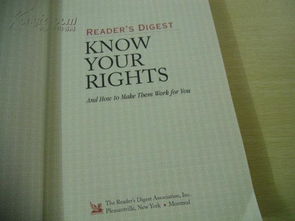How to Make Your Money Work for You
Managing your finances effectively is an art that can lead to financial freedom and security. The key is to make your money work for you, rather than the other way around. Here’s a detailed guide on how you can achieve this.
Understanding Your Financial Situation

Before you can make your money work for you, it’s essential to have a clear understanding of your financial situation. This includes knowing your income, expenses, debts, and savings.
| Income | Expenses | Debts | Savings |
|---|---|---|---|
| Salary | Utilities | Student Loans | Emergency Fund |
| Bonus | Entertainment | Car Loan | Retirement Fund |
| Investment Returns | Healthcare | Personal Loan | Travel Fund |
Once you have a clear picture of your financial situation, you can start making informed decisions about how to allocate your resources.
Creating a Budget

A budget is a financial plan that helps you manage your income and expenses. It’s crucial to create a budget that aligns with your financial goals and priorities.
Here’s a step-by-step guide to creating a budget:
- Track your income and expenses for a month.
- Categorize your expenses into fixed and variable categories.
- Set spending limits for each category.
- Adjust your budget as needed to ensure you’re staying within your limits.
Remember, a budget is not a strict rulebook. It’s a flexible tool that can help you make better financial decisions.
Building an Emergency Fund

An emergency fund is a savings account that you can use to cover unexpected expenses, such as medical bills or car repairs. It’s essential to have an emergency fund to avoid going into debt during a financial crisis.
Here’s how to build an emergency fund:
- Set a goal for your emergency fund. A common recommendation is to save three to six months’ worth of living expenses.
- Start small and gradually increase your contributions as your income grows.
- Keep your emergency fund in a separate account to avoid spending it on non-emergency items.
Investing Wisely
Investing is a powerful way to make your money work for you. By investing in stocks, bonds, or real estate, you can potentially earn higher returns than you would with a savings account.
Here are some tips for investing wisely:
- Do your research. Understand the risks and potential returns of different investment options.
- Start with a small amount and gradually increase your investments as you become more comfortable with the process.
- Consider working with a financial advisor to help you make informed investment decisions.
Reducing Debt
Debt can be a significant burden on your finances. It’s essential to reduce your debt as quickly as possible to free up more money for savings and investments.
Here’s how to reduce your debt:
- Make a list of all your debts, including the amount owed, interest rate, and minimum payment.
- Pay off high-interest debts first to save on interest payments.
- Consider consolidating your debts to simplify your payments and potentially lower your interest rate.
Maximizing Your Savings
Maximizing your savings is crucial for achieving financial security. Here are some ways to maximize your savings:
- Take advantage of employer-sponsored retirement plans, such as a 401(k) or 403(b), and contribute as much as possible.
- Automate your savings to ensure you consistently contribute to your savings accounts.
- Review your insurance policies to ensure you’re not


